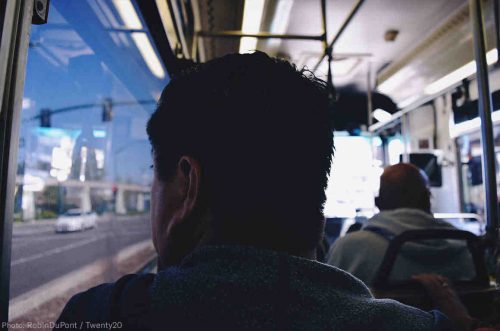
 By Laurin Leonard
By Laurin Leonard
In 2012, I founded an organization called Mission: Launch with my mom. Based out of Baltimore, Mission:Launch helps formerly incarcerated individuals become self-sufficient faster. For us, this means helping individuals earn a more livable wage by obtaining an occupational license through our program, LaunchPad.
The biggest thing my mom and I have learned since starting Mission:Launch is the importance of having a strong support system. Of all the people we’ve interacted with at the organization, the people who are most successful are always the ones who have strong family or community support. During reentry, having that safety net of people who are willing to catch you if and when you fall is crucial. And so, at Mission:Launch, we prioritize community, family, and peer-support networks.
In practice, that means getting to know every person we engage with and working to understand all the support they will need on their journey. This is why LaunchPad begins with a robust intake to better understand what type of holistic support a person will need. We then refer them to partner service organizations so that we can help them stay focused on obtaining their occupational license. As a society, we make it extremely hard for people to get back on their feet after incarceration. Without the right support it can be close to impossible.
My mom and I know this because we’ve lived it.
In 2003, after completing my freshman year of college, I came home for summer break to find that my mom was dealing with serious legal problems. She was the co-founder of a company that was 
investigated for securities fraud. She would eventually receive an 87-month sentence that was reduced by 17 months on appeal. Her imprisonment affected every aspect of my life as a young adult. When we think of the impact of children, we often put a cap on the age of a child. However, as a recent college graduate, I still needed and wanted the influence of my mom.
Several times a month, I would travel over 5 hours to see my mom. These visits would enable us to think long and hard about how we wanted to find meaning from this experience as a family. Indeed it was this time with my mom that would allow us to come up with the idea for Mission:Launch. After a while, we were beginning to understand the barriers that she and others might encounter post-incarceration — barriers that became very real to us after my mom was released. Every day we learned something new about how individuals continue to be held back even after they have served their sentences and, in some instances, long after they are back on their feet.
With each passing year, we kept realizing that the collateral consequences of having a record all stem from one major barrier: the criminal background check process. This process is often required to get a job, pursue higher education, and even access an apartment. We have even come to understand how difficult it is to navigate the background check when building teams for ourselves. At Mission: Launch, we are dedicated to hiring and recommending formerly incarcerated people for job opportunities, but we also understand that even the most well-meaning employers, like us, often have to rely on criminal background data to ensure the safety of their employees and clients. This data and the background check can be confusing and not factually accurate.
That’s why we’ve developed our own alternative background check system. After having a tough time ourselves, we realized that decision makers need a tool that honestly informs you of a person’s criminal record but also shows you their potential. Our alternative background check, a web and mobile responsive platform called R3 Score, includes information like whether or not the person has positively taken steps to reconnect to society, such as pursuing an education, gaining stable housing, or reestablishing family bonds. These are only some of the indicators we measure when trying to assess an individual’s riskiness and readiness.
Beyond increased earning through an occupational license, we are strong advocates for the expanded use of tech in reentry innovations as well as digital inclusion. I grew up with a mom that insisted I have a Palm Pilot, even though I was in middle school, because she knew that tech savviness was critical to advancing in society. So when my mom went to prison around the same time that the iPhone came out, she instinctively knew that she was missing a tech boom.
For her coming home and plugging back in was critical because in such a tech-dependent society, this isn’t a trivial matter. Without the tools to navigate new technologies, formerly incarcerated people cannot be truly self-sufficient. So while we don’t provide programming ourselves, we make sure to promote and strategically partner with other organizations that make tech education as well as access to hardware, software, and high speed internet more available.
At Mission: Launch, my mom and I bring our experiences with the criminal justice system into the work we do every day. We believe that there is no better “expert” on criminal justice reform than the people who have actually been impacted by the system. No one knows more about the challenges of reentry than the families of the formerly incarcerated. After all, people don’t go to prison. Families do.
Laurin Leonard is President & Executive Director of Mission:Launch, Inc. , Mission:Launch, Inc.
